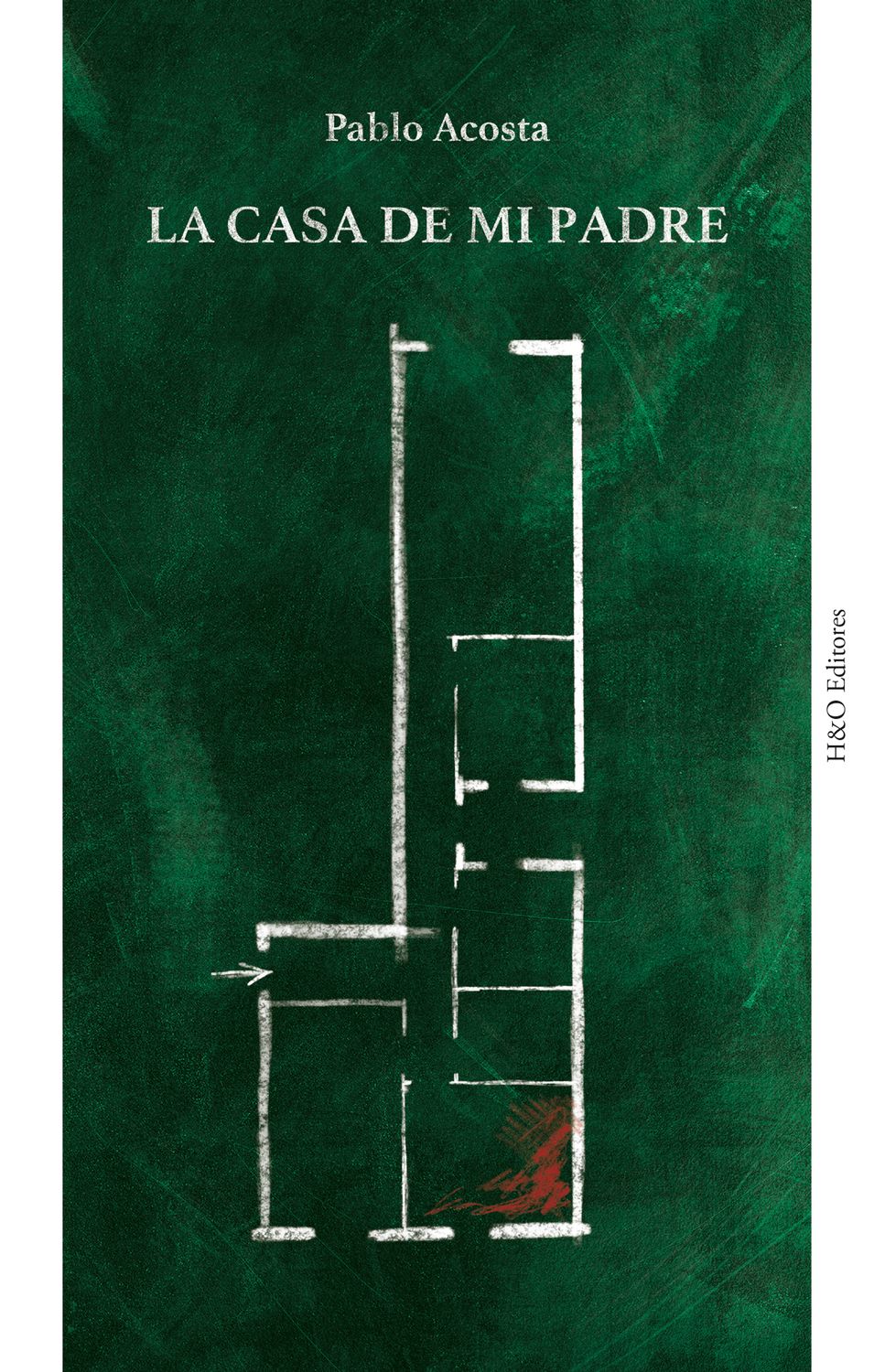
La casa de mi padre
There is no plot, and there are no characters. This house is built as a monument. Welcome to the Pablo Acosta’s universe.
This isn’t a book, it’s a house. A house with its front door, halls, windows, bedrooms, a home office… A dwelling where the narrator lived in his youth and now he roams with his hands to build a memory palace. He allows in the tenuous light of the picture windows enabling us to pass through, down the wide hallway. Because, as in all houses, it’s dark at the end of the hall. This isn’t a book, it’s a house.
«A stunningly poignant story told with originality and grace, whose epicenter is set in a specific house, on a specific island. While bathed in light outside, touched by air and sea; on the inside dwells, among a father’s collection of paintings and books, the horrific, shivering image of a moment of violence fixed in time. Memories blossom along walls and floors in this intimate, visionary story, which is also a search taken step by physical step beyond the place of grief to the paradox of peace, of life, of relinquishing the need to understand. Daringly innovative, vivid, visceral, and ultimately illuminating, Acosta has produced a novel full of passion and raw beauty, marking one of the strongest debut voices to come out of contemporary Spanish literature.» Valerie Miles
«Memory can be a palace or a house in ruins. Pablo enters the latter, ignoring every trick and narrative trap a novel can throws at us. He provides a blueprint, a gun, and this explosive book, full of into pain, inspiration, terror, and obsession. He writes to put the house on fire and escapes from the flames» Miqui Otero
«One of the six best narrative debuts of the year.» La Lectura (El Mundo)
«Acosta goes back to his childhood home and rebuilds it by writing with the same pain with which Brodsky returned to his room and a half.» Anna Maria Iglesia, La Lectura (El Mundo)
«As an expert in mysticism, his literary ideas owe a great deal to the visionary tradition, by way of Lautréamont. The pleasure of the language as a dense and lavish material resides within him with an almost neurotic, constructive meticulousness.» Carlos Femenías, Zenda Libros
«Read this book, excuse me, this house. Read this author.» Nicolás Dorta, El Periódico
«One of the most fantastic and impressive first lines I have ever read in a book.» Sílvia Soler, Vostè Primer, RAC1 Radio
«With the same devotion as the Brahmins building a fire altar, brick by brick, out of the need to give form to what is only chase, so too has this book been written, imbued with the spirit of the exercise or asceticism.» Victoria Cirlot, Mercurio
«The house, in the style of Cortázar’s ‘House Taken Over,’ is a living organism with rooms that pulse and/or die, a house of memory, a liturgical space from which to become a heretic or a convert.» Gema Monlleó, Détour Magazine
«It is in the unusual where I find the way to betray what I lived.» Interview with Almudena Cruz, El Día
«A narrative monument to the evocation of the (absent) father figure.» Interview with Paula Sáenz de Viteri, Pliego Suelto